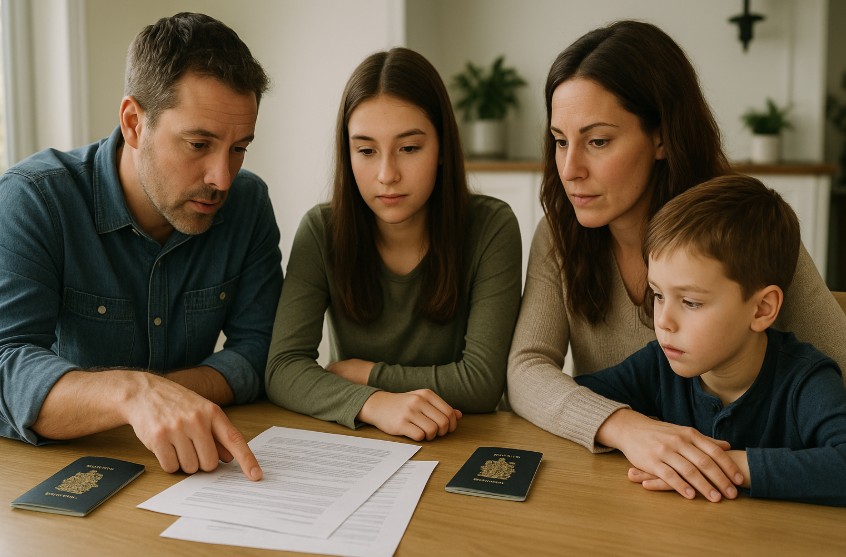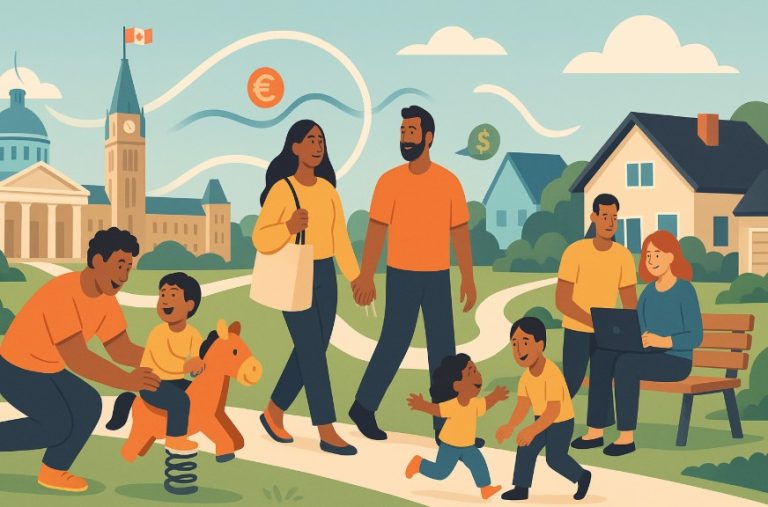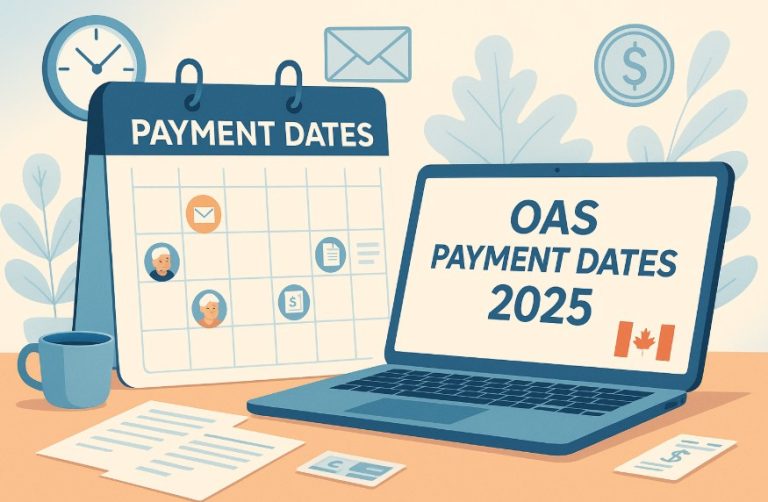When applying for a Canadian passport, one of the most important requirements is having a guarantor. A guarantor plays a vital role in verifying your identity and confirming that the details in your application are accurate. Many applicants often wonder whether a family member can step into this role, since family connections usually bring trust and convenience.
However, the answer is not always straightforward, as the rules surrounding guarantors have specific conditions and exceptions. Some relatives may qualify, while others are restricted due to their relationship with the applicant.
Understanding who can serve as a guarantor helps you avoid delays, rejected applications, or requests for additional documentation. This guide explores whether a family member can be your guarantor for a Canadian passport, what the eligibility rules are, and the alternatives available if you cannot find someone who meets the requirements.
What Does a Guarantor Do in a Canadian Passport Application?

A guarantor in a Canadian passport application has a very specific and important responsibility. Their role is to act as a trusted individual who can confirm that the person applying is who they claim to be. By verifying your identity, the guarantor essentially helps prevent fraudulent passport applications and ensures that the passport remains a secure travel document.
The duties of a guarantor include:
- Signing your application form to confirm the accuracy of your personal details.
- Signing the back of one of your passport photos to certify that the image is a true likeness of you.
- Providing their own passport information on the application for verification.
- Being available if officials need to contact them with questions about your identity.
Guarantors are not required to provide personal recommendations about your character, but they must be confident that the information they certify is correct. Their role is designed to confirm your identity, not to endorse you personally. Understanding this responsibility is crucial because it sets the standard for who is eligible and why not every family member automatically qualifies as a guarantor.
Can a Family Member Act as a Guarantor for a Canadian Passport?
Many applicants wonder if they can save time by using a relative as their guarantor. The answer is yes, but only if that family member meets all of the official requirements. In Canada, the rules do not exclude family members entirely. In fact, siblings, cousins, aunts, uncles, and even grandparents may serve as guarantors if they fulfil the conditions that apply to all guarantors.
A family member can act as your guarantor if they:
- Are a Canadian citizen.
- Are 18 years of age or older.
- Hold a Canadian passport that is currently valid or has expired within the last year.
- Have known you personally for at least two years.
- Can communicate in either English or French.
While many relatives fit these conditions, there are exceptions. For example, parents and legal guardians are not permitted to act as guarantors for children or dependent adults when they are the ones applying on their behalf. The reasoning is to maintain an additional level of verification beyond immediate parental or guardian authority.
Using a family member can be convenient since they may already know you well and can be easily contacted. However, always check carefully whether they meet every requirement before naming them on your application to avoid processing delays.
Who Qualifies as a Guarantor for a Canadian Passport?
Not everyone can act as a guarantor for a Canadian passport. Since guarantors play a key role in ensuring the credibility of your application, the eligibility rules are clear and firm. When considering whether a person qualifies, the government applies several criteria that focus on citizenship, age, passport history, language ability, and personal knowledge.
Core Eligibility Requirements
- Canadian citizenship: The guarantor must be a Canadian citizen.
- Age requirement: They must be at least 18 years old.
- Passport status: They should hold a Canadian passport that is valid or has expired within the past year.
- Personal knowledge: They need to have known you personally for at least two years, not just professionally.
- Language ability: They must be able to communicate in English or French in case officials need to speak with them.
These criteria ensure that guarantors are credible individuals who have a reliable connection with the applicant.
Acceptable Family Relationships vs Restricted Ones
Family members can qualify as guarantors provided they meet the requirements above. Siblings, cousins, aunts, uncles, or grandparents may serve this role. What matters most is that they can confirm your identity, not the closeness of the family tie.
However, certain restrictions apply. Parents and legal guardians cannot act as guarantors for the children or dependent adults whose applications they are submitting. This safeguard prevents any potential conflict of interest. Similarly, spouses are not automatically excluded, but in some cases, using them may complicate verification if they are seen as having too direct an interest in the application.
In summary, qualifying as a guarantor is less about family relationship and more about meeting official requirements. Family members are acceptable in many cases, but the rules are in place to ensure that verification remains objective and credible. Applicants should always double-check that their chosen guarantor is eligible before submitting their documents.
Which Family Members Cannot Be Guarantors for a Canadian Passport?

While some family members can act as guarantors, others are not eligible. The rules around guarantors are designed to provide a layer of impartiality, so immediate family members who have direct responsibility for an applicant are excluded in certain cases.
Parents or Guardians for Child or Dependent Applications
Parents and legal guardians are not allowed to serve as guarantors when applying on behalf of their children or dependent adults. This rule is in place because the guarantor’s job is to provide independent verification.
Since a parent or guardian is already responsible for the application, their confirmation would not add an extra safeguard. Instead, the guarantor must be someone else who has known the applying parent or guardian personally for at least two years, while also being aware of the child or dependent’s identity.
Spouse or Immediate Family Restrictions in Some Cases
Spouses, common-law partners, and sometimes other very close relatives may not be the ideal choice for a guarantor. While they are not outright prohibited, officials may prefer that guarantors come from outside the immediate household to ensure an unbiased verification.
If a spouse or partner meets the formal requirements, they can technically act as a guarantor, but applicants should consider whether this may create questions or delays during processing.
These exclusions are not intended to make the process difficult, but rather to strengthen the integrity of Canadian passports. A guarantor adds credibility by being a third party who can vouch for your identity beyond the closest relationships. For applicants, it is crucial to understand these boundaries before selecting a guarantor to avoid having an application returned or delayed.
Do You Need a Guarantor for Passport Renewals in Canada?
One of the most common points of confusion is whether a guarantor is required when renewing a Canadian passport. The answer depends on the type of renewal being requested.
For simplified renewals, a guarantor is not required. If your current passport is still valid or expired less than one year ago, and you meet the renewal criteria, you can apply without providing a guarantor. This process is faster because your identity has already been verified when your last passport was issued.
However, a guarantor is required for first-time passport applications or cases where you do not qualify for the simplified renewal process. For example, if your passport expired more than one year ago, or if your passport was lost, stolen, or damaged, you will need a guarantor to support your new application.
Knowing the difference between renewal requirements and first-time applications saves time and prevents unnecessary mistakes during the process.
What Are the Responsibilities of a Guarantor?
The guarantor’s role goes beyond simply agreeing to be listed on your application. They have clear responsibilities that must be completed carefully to ensure the application is processed smoothly.
A guarantor must:
- Sign your application form to certify that the information you provided is true.
- Sign and date the back of one of your passport photos to confirm that it is a true likeness of you.
- Provide their own passport details on your form for verification.
- Sign photocopies of your identification documents if you are providing copies instead of originals.
- Be available to confirm details with passport officials if contacted.
These responsibilities may seem simple, but accuracy is important. If the guarantor forgets to sign in the right places, omits dates, or provides outdated passport details, your application may be delayed.
Guarantors must also understand that they are taking on a legal responsibility when signing your documents. By certifying your application, they are confirming under law that the information is true to the best of their knowledge. Because of this responsibility, it is essential to choose a guarantor who understands their role and can fulfil it properly.
What if You Can’t Find a Guarantor in Canada?

Not everyone has someone who meets all the requirements to act as a guarantor. If you cannot find a qualified guarantor, there is an alternative process in place to ensure you can still apply for a passport.
In such cases, you may use two references and complete a statutory declaration in lieu of a guarantor. A statutory declaration is a legal form that must be signed in front of someone authorized to administer oaths and declarations, such as a lawyer, notary public, commissioner for oaths, or justice of the peace.
Your two references must:
- Be at least 18 years old.
- Have known you personally for at least two years.
- Not be related to you.
- Be available if officials need to confirm information about you.
This option ensures that even applicants without eligible guarantors can still complete their passport application without unnecessary obstacles.
How Long Must a Guarantor Have Known You Personally?
One of the most important requirements for a guarantor is the length of time they have known you. A guarantor must have known you personally for at least two years before the date of your application. This condition ensures that the guarantor has a genuine and established familiarity with your identity, rather than being someone you met recently.
Knowing someone personally means more than just working with them or being introduced briefly. It involves having enough familiarity to answer questions about your background, such as your full name, approximate age, place of birth, and current residence. Passport officials may contact your guarantor to ask these questions, so the relationship must be authentic.
The two-year requirement applies equally to family members and non-family members. Even if a relative is close to you by blood, they cannot act as your guarantor unless they have had at least two years of personal knowledge of your life and identity.
For children or dependent adult applications, the guarantor must have known the applying parent or guardian for at least two years, while also being familiar with the child or dependent’s details. This rule underscores the importance of selecting a guarantor carefully to avoid delays.
What Are Common Mistakes Applicants Make With Guarantors?
Mistakes with guarantors are one of the main reasons passport applications are delayed or returned. Many applicants assume that any family member or close friend can serve as a guarantor without checking the detailed requirements.
Common errors include:
- Choosing a guarantor who is under 18 years old.
- Using someone who is not a Canadian citizen.
- Selecting a person whose passport has expired for more than one year.
- Listing a guarantor who has not known the applicant for at least two years.
- Forgetting that parents or guardians cannot act as guarantors for child or dependent applications.
- Submitting forms with missing signatures or incorrect passport details from the guarantor.
These mistakes can easily be avoided by carefully reviewing the guarantor eligibility rules before submitting your application. Taking the time to confirm that your guarantor meets all the conditions ensures a smoother process and reduces the chance of delays.
Can Professional Guarantors Replace Family Members?

While family members are often the first choice for many applicants, there are situations where a professional guarantor may be the better option. Professional guarantors are individuals in recognized occupations who automatically meet the requirements to act as guarantors, provided they also know you personally for at least two years.
Examples of professional guarantors include doctors, dentists, pharmacists, lawyers, judges, police officers, teachers, accountants, engineers, and elected officials. They are accepted because their professional standing provides additional credibility.
Professional guarantors can be particularly useful when:
- You do not have any eligible family members who meet the requirements.
- Your family members live abroad or are unavailable.
- You want to avoid complications that may arise from close family relationships.
Choosing a professional guarantor can add convenience and reliability. Since these individuals are accustomed to official paperwork, they are less likely to make mistakes when signing your documents. However, the same requirement of knowing you personally for at least two years still applies.
This option ensures that every applicant, regardless of family circumstances, has a pathway to completing their passport application successfully.
Conclusion
A guarantor is an essential part of the Canadian passport application process, providing credibility and helping protect the security of passports. While family members can act as guarantors, they must meet specific eligibility requirements, including citizenship, age, valid passport status, and personal knowledge of at least two years.
Certain restrictions apply, particularly for parents, guardians, and sometimes spouses, to ensure impartial verification. For renewals, guarantors are not always required, but for first-time applications, they remain essential. When a guarantor cannot be found, applicants can rely on references and statutory declarations.
By understanding the responsibilities of guarantors and the rules that guide their eligibility, you can choose the right person confidently. This preparation helps prevent delays and ensures your Canadian passport application is processed smoothly, whether you rely on a family member, a professional guarantor, or alternative options.
FAQs
Can siblings be guarantors for a Canadian passport?
Yes, siblings can act as guarantors if they meet the official requirements such as citizenship, age, valid passport, and two years of personal knowledge.
Can my spouse act as a guarantor for my Canadian passport?
A spouse can sometimes act as a guarantor, but in certain cases, authorities may prefer a more independent person to avoid conflicts.
Is a guarantor needed for child passport renewals in Canada?
Yes, a guarantor is needed for first-time applications for children, but not always for renewals if the child qualifies under renewal criteria.
Can grandparents be guarantors for Canadian passports?
Yes, grandparents are eligible to be guarantors as long as they meet the requirements for age, citizenship, valid passport, and personal knowledge.
What happens if my guarantor’s passport expired over a year ago?
If their passport has expired for more than one year, they cannot be used as a guarantor, and you will need to find another eligible person.
Can a guarantor live outside Canada?
Yes, a guarantor may live outside Canada, but they must still be a Canadian citizen with a valid or recently expired Canadian passport.
What if my guarantor is unavailable when officials contact them?
If your guarantor cannot be reached, your application may be delayed, so it is best to select someone who is readily available.




